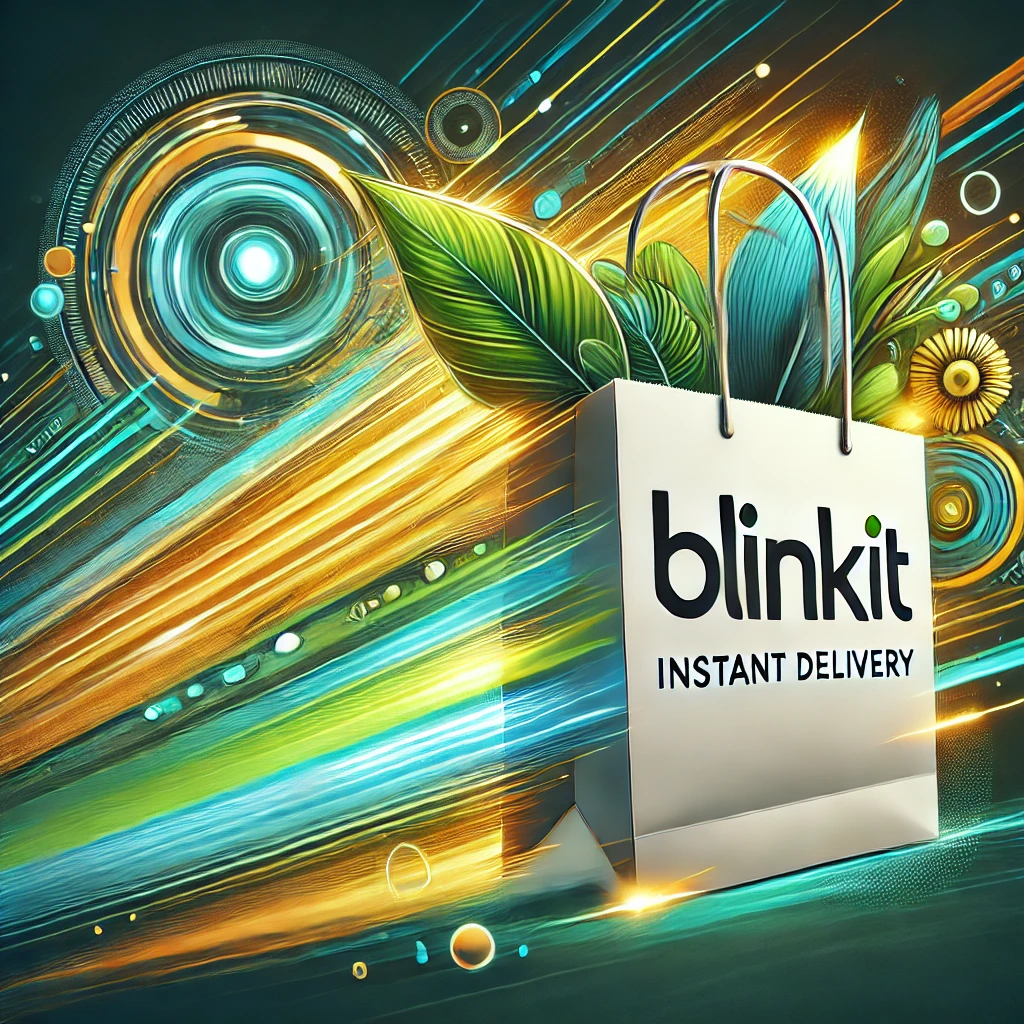Zomato, a leading player in India’s food delivery ecosystem, has injected Rs 500 crore (approximately $58 million) into its quick commerce subsidiary Blinkit. This marks the second major investment in Blinkit within a year, bringing Zomato’s total funding in the unit to Rs 2,800 crore. The move underscores Zomato’s commitment to capitalizing on the rapid growth of the quick commerce market, where competitors like Swiggy Instamart and Zepto are equally aggressive in their expansion strategies.
Zomato’s Strategic Investments in Blinkit
The recent infusion of Rs 500 crore is part of Zomato’s broader strategy to bolster Blinkit’s operational capabilities and expand its footprint. This funding follows the Rs 300 crore invested in June 2024 and aligns with Zomato’s fundraising efforts in late November, which generated Rs 8,500 crore via a qualified institutional placement (QIP). Notably, Rs 2,137 crore of this capital was earmarked for Blinkit’s expansion, signaling the significance of quick commerce in Zomato’s growth plans.
Blinkit’s aggressive scaling strategy is evident in its plans to establish 2,000 dark stores by 2026, up from 791 as of Q2 FY25. This network expansion is expected to enhance the brand’s ability to deliver groceries and essential items within minutes, a key selling point in the competitive quick commerce sector.
Expansion Spree: Blinkit’s Ambitious Plans
Quick commerce, characterized by its promise of ultra-fast deliveries, has emerged as a highly competitive segment within the broader e-commerce ecosystem. Blinkit is adopting an ambitious expansion strategy to strengthen its position in this rapidly evolving market.
Key Steps in Blinkit’s Expansion:
- Leadership Enhancement:
Blinkit has onboarded former Flipkart executive Vipin Kapooria as its Chief Financial Officer. This strategic hire brings expertise in scaling operations and managing financial complexities, crucial for Blinkit’s aggressive expansion plans. - Network Growth:
The target of opening 2,000 dark stores by 2026 demonstrates Blinkit’s focus on enhancing its hyper-local delivery capabilities. Dark stores, designed for rapid order fulfillment, are central to Blinkit’s promise of delivering within 10-20 minutes. - Leveraging Zomato’s Ecosystem:
By integrating Blinkit more closely into its ecosystem, Zomato aims to maximize customer retention and cross-sell opportunities, leveraging its extensive user base.
Competitive Landscape in Quick Commerce
The quick commerce market in India is witnessing fierce competition, with major players like Swiggy Instamart and Zepto vying for dominance alongside Blinkit.
Swiggy Instamart:
Swiggy Instamart recently launched a standalone app for its quick commerce services, signaling its intent to compete directly with Blinkit. The new app enhances user experience and focuses on retaining customers within its ecosystem.
Zepto:
Zepto, a rapidly growing competitor, has reported an annualized gross order value (GOV) on par with Blinkit. With its efficient delivery network and focus on scaling operations, Zepto remains a formidable rival.
New Entrant Swish Eyes Fundraising
Adding to the competition is Swish, a 10-minute food delivery startup that is gaining traction. Swish is reportedly in talks to raise $7-$8 million in a fresh funding round led by UK-based Hara Global. This comes after its $2 million seed round in November last year, which allowed it to compete with players like Swiggy’s Snacc, Zepto Cafe, and Bistro by Blinkit.
While the new round is significantly lower than the $15-$20 million the company initially planned to raise, it reflects investor interest in quick commerce startups despite the capital-intensive nature of the sector. Swish’s ability to secure funds amid challenging market conditions highlights the potential investors see in its unique positioning within the market.
Challenges in Quick Commerce
The quick commerce industry is lucrative but fraught with challenges, including high operational costs, competitive pricing pressures, and thin profit margins.
- Cost of Expansion:
Building a network of dark stores and maintaining a robust delivery fleet require significant investments. Blinkit’s Rs 2,800 crore investment to date illustrates the capital-intensive nature of scaling quick commerce operations. - Profitability Concerns:
While customer acquisition and rapid delivery are key priorities, profitability remains elusive for most players in the sector. Efficient logistics and inventory management are critical to achieving long-term success. - Intense Competition:
The presence of multiple well-funded players like Swiggy, Zepto, and emerging startups like Swish creates a highly competitive environment, making differentiation crucial. - Consumer Expectations:
Meeting the promise of ultra-fast deliveries consistently is a logistical challenge, especially in congested urban areas or under adverse conditions.
Future Outlook for Blinkit and Quick Commerce
The quick commerce market in India is poised for significant growth, driven by increasing consumer demand for convenience and rapid delivery. According to industry estimates, the sector is expected to grow at a compound annual growth rate (CAGR) of 27%, reaching $5.5 billion by 2025.
Key Growth Drivers:
- Rising Urbanization:
The growing urban population, coupled with busy lifestyles, is fueling demand for quick commerce services. - Digital Penetration:
The widespread adoption of smartphones and digital payment systems has made it easier for consumers to access quick commerce platforms. - Innovations in Supply Chain:
Investments in technology and infrastructure are enabling faster and more efficient deliveries.
Conclusion
Zomato’s continued investment in Blinkit highlights the importance of quick commerce in its growth strategy. With Rs 500 crore funneled into Blinkit in its latest funding round, the company is doubling down on its commitment to expand its footprint and strengthen its market position. The addition of experienced leadership and an ambitious plan to open 2,000 dark stores by 2026 underscore Blinkit’s focus on scaling operations and enhancing customer experience.
As the quick commerce market continues to evolve, competition remains intense. Players like Swiggy Instamart and Zepto are pushing the boundaries of innovation, while emerging startups like Swish are carving out niches for themselves. Despite challenges such as profitability and high operational costs, the market’s growth potential remains strong.
Blinkit’s success in leveraging Zomato’s ecosystem and maintaining operational efficiency will determine its ability to dominate the quick commerce landscape. With the backing of Zomato’s resources and strategic investments, Blinkit is well-positioned to lead the charge in redefining convenience for the modern consumer.
Also Read: Manish Kumar on Building a Legacy of Italian Dining in India
